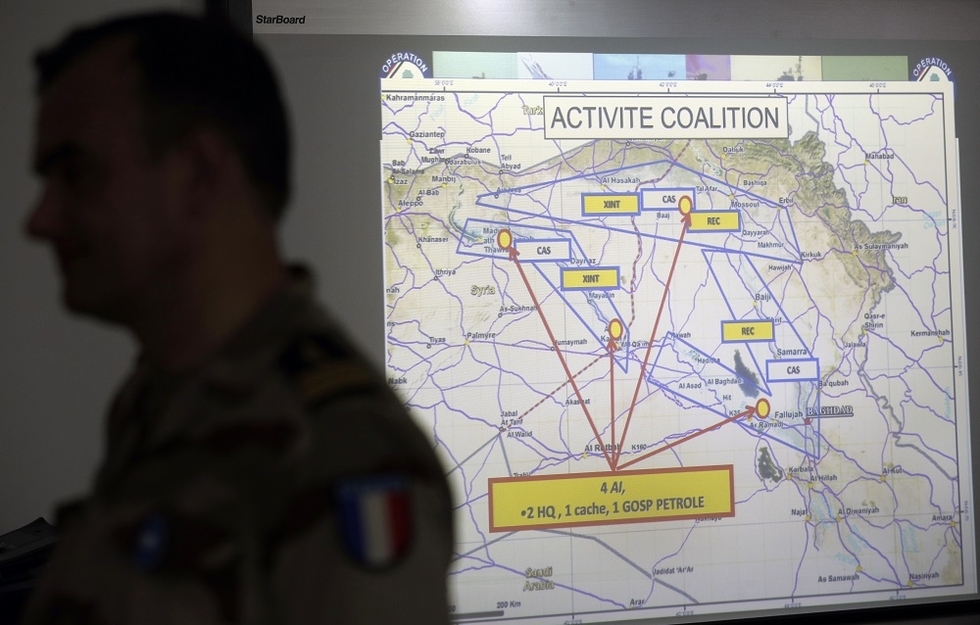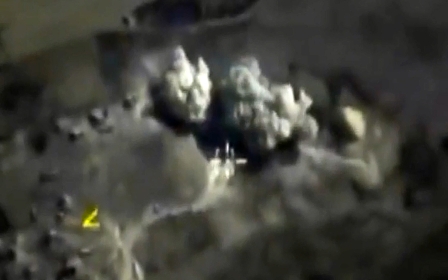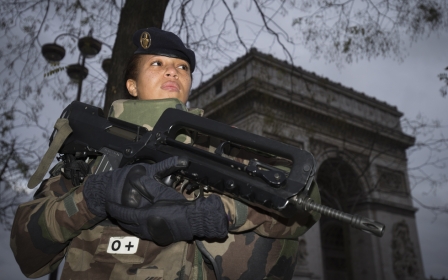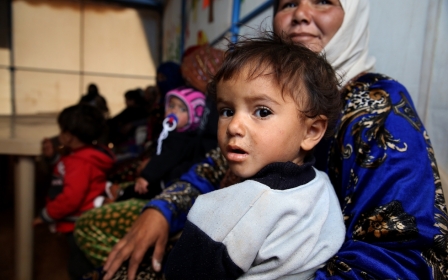France and Russia join forces against IS

France and Russia significantly stepped up their attacks in Syria and have agreed to join forces against the Islamic State group, with Moscow vowing revenge for the bombing of a passenger jet over Egypt and France invoking a mutual defence treaty obliging military aid from EU member states.
Russia on Tuesday fired a wave of cruise missiles and launched dozens of air strikes on Raqqa, the de facto capital of the IS group, hours after President Vladimir Putin vowed revenge for the downing of flight A321 in a "terrorist act" on 31 October over Egypt's Sinai with the loss of all 224 people on board.
The Russian FSB spy agency had earlier said the plane was destroyed by a homemade bomb with the power of one kilo of TNT.
"The killing of our people in the Sinai Peninsula is one of the bloodiest crimes," Putin said late on Monday. "But this will not prevent us from finding and punishing the criminals. We will find them, wherever they are, and we will punish them."
France meanwhile launched more bombing raids on Raqqa overnight in response to the IS massacre of 129 in Paris last week, while the country's defence minister, Jean-Yves Le Drian, on Tuesday asked EU states for aid under article 42 of the Lisbon Treaty, which obliges signatories to provide "by all the means in their power" military aid to any member attacked on its territory.
EU foreign policy chief Federica Mogherini said that EU defence ministers unanimously backed the request. It was the first time the article has been invoked.
Putin and his French counterpart Francois Hollande later agreed to co-ordinate their military and security operations, in a significant hardening of opposition to the IS group.
The Kremlin said in a statement: "It has been agreed to assure closer contact and co-ordination between the military and security service agencies of the two countries in actions against terrorist groups by Russia and France in Syria."
Putin ordered the Russian navy in the Mediterranean to establish contact with its French counterparts and work together "as allies".
In the UK, Prime Minister David Cameron told MPs that British forces should attack the "head of the snake" and said he would make the case for bombing in Syria. MPs voted against military action in Syria in August 2013, preventing UK forces from operating there.
The Lisbon Treaty article used by France is similar to Nato's article five, which the US activated after the 11 September 2001 attacks and triggered the invasion of Afghanistan.
Nato said it was providing support to France but had not triggered article five. Secretary General Jens Stoltenberg said "many Nato allies have offered France support and help, and we are doing so in many different ways".
More arrests in hunt for French-Belgian cell
The hardening of military efforts against IS come as French and Belgian police continued their hunt for associates of the Paris attackers.
Two people were reportedly arrested in Belgium on suspicion of making explosives used in Paris, and for driving fugitive Salah Abdeslam out of the city after the attacks.
La Derniere Heure newspaper said the men were Belgian nationals of Moroccan origin, and named them as Hamza Attou and Mohamed Amri.
The two men allegedly drove from Brussels to collect Abdeslam from Paris at 5am on Saturday morning, hours after the attacks. A police search of their house found ammonia nitrate, a fertiliser that can be used to make explosives, the newspaper reported.
Abdeslam, 26, is wanted for allegedly driving three attackers to the Bataclan concert venue, where they killed at least 89 people. The car they used, a rental Polo registered under Abdelslam's name, was abandoned at the site.
He was the subject of police raids in the Molenbeek area of Brussels on Monday, where he was based before the Paris attacks, but is still at large.
Abdeslam's brother, Brahim, was one of the Paris attackers, blowing himself up near a cafe on the Boulevard Voltaire.
Another brother, Mohamed, urged Abdeslam to surrender to police to allow the "legal system to shed light" on the case.
Austrian authorities on Tuesday said Abdeslam travelled to Austria in September, telling police after arriving from Germany with two men that he was "on holiday".
Germany said it had arrested five people near Aachen, a city near the border with Belgium, in connection with the Paris attacks.
Meanwhile, investigators have obtained a video confirming there was a ninth attacker in the Paris attacks, sources close to the inquiry told AFP on Tuesday.
The video indicates a second unidentified attacker could be on the run along with Abdeslam, unless the man in the video is one of two suspected accomplices being held in Belgium.
Middle East Eye propose une couverture et une analyse indépendantes et incomparables du Moyen-Orient, de l’Afrique du Nord et d’autres régions du monde. Pour en savoir plus sur la reprise de ce contenu et les frais qui s’appliquent, veuillez remplir ce formulaire [en anglais]. Pour en savoir plus sur MEE, cliquez ici [en anglais].




